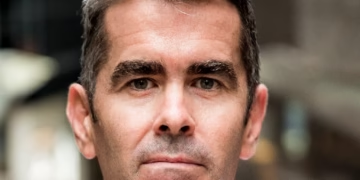- Revenues grow by 9.9% in local currency and 5.6% in US dollars
- More than 36,000 net new jobs created taking total workforce to more than 364,000
- US$3.7 billion of new investment around the world including 17 acquisitions from cloud to climate change
LONDON, 24 October 2023 – For the 12 months ending 30 June 2023, PwC firms around the world reported record gross revenues of US$53.1 billion, growing by 9.9% in local currency and 5.6% in US dollars over the FY22 gross revenues of US$50.3 billion.
Growth from continuing operations, excluding Russia which left the PwC network on 4 July 2022, and our Global Mobility and Immigration business which was sold on 29 April 2022, increased by 11.8%, reflecting the quality of the work delivered by over 364,000 professionals around the world and the power of the PwC brand.
Bob Moritz, Global Chair, PwC said:
“Our focus on delivering the quality services that our stakeholders need to prosper today and to prepare their organisations for the future has driven another year of growth for us. As we come up to our 175th anniversary, we continue to invest in the future of our network with strategic acquisitions in key growth areas and a drive to expand our workforce and continue to acquire a broad and diverse range of talent. Providing the best quality services we can is the focus of all of my colleagues around the world and the foundation of our success. I am proud of the hard work and dedication our PwC people have shown over the last year.”
Revenues grow across the world
While some countries continue to battle high inflation and economic growth remains sluggish in a number of key economies, revenue growth was steady throughout the year across the PwC network.
- Europe, Middle East and Africa (EMEA) revenues were up by 10.2%. Consolidated revenues from the UK and Middle East rose by 16% (18% for continuing operations), while in Germany they increased by 13.1%. Across Africa, revenues grew more slowly, up 4.1%, with a strong performance from South Africa, coupled with more challenging market conditions elsewhere across the continent.
- Excluding revenues from Russia from the prior year, Central and Eastern Europe (CEE) saw growth of 15.2% as the economic impact of the war in Ukraine lessened across most of the region.
- Asia Pacific revenues were up 7.2%, with a very strong performance from India, which was the fastest growing large firm in the PwC network with a revenue increase of 24%. Australia grew by 10.7%.
- Across the Americas, revenues were up by 10.7%, with the US growing by 11.2%, Canada by 4.5% (10.9% for Continuing Operations). In Brazil, which for the second year posted the strongest revenue growth across South and Central America, revenues were up by 14.3%.
Strong results across all lines of business
Each of our lines of business – Assurance, Advisory, and Tax and Legal Services – saw revenues grow in FY23.
Assurance
Revenues from our assurance operations grew by 8.9% to US$18.7 billion (FY22: US$18.0 billion). Audit remains the cornerstone of our brand and the key driver for growth in our Assurance business. In an increasingly volatile world, the market continues to value an independent, objective view over reported financial information and the trust it builds in the capital markets. Our audit business has continued to grow over the last year as we manage complex market dynamics, such as auditor rotation, regulation and increasing competition. We also see increasing demand for assurance over a range of non-financial information, such as cyber and ESG disclosure, as companies seek to build trust with their stakeholders in new areas. We expect to see this trend continue in future years.
Over the past year, we also saw substantial growth in our risk services. Geopolitical conflict and an inflationary environment have caused significant uncertainty. We have guided organisations to navigate this uncertainty, helping them bring confidence and delivering better business outcomes in areas such as regulatory response and remediation.
We also saw strong demand for our risk modelling and actuarial offerings as organisations increasingly seek assurance in broader areas.
Advisory
Revenues from our advisory operations grew by 13% to US$22.6 billion (FY22: US$20.7 billion).
Much of the growth in our Advisory business has been driven by our clients’ focus on the need to digitally transform their business models. We have strengthened our relationships with our key technology Alliance partners to go-to-market and deliver sustained outcomes, which has driven a 40% increase in revenues from alliances. We’ve also met the demand of our clients to deliver across the entire value chain – from strategy and implementation to run and operate – driving significant growth in our Managed Services business.
While challenging economic conditions continued to result in generally slow deal activity in a number of key markets around the world, our work to advise on and support our clients’ mergers, acquisitions and disposals remained relatively strong throughout the year. In addition, our work to support corporate reorganisations or distressed enterprises also expanded.
Tax and Legal Services
Revenues from our Tax, Legal and Workforce businesses grew strongly in FY23, up by 12.5% to US$11.8 billion, compared with growth of 8.7% in the previous year. These growth numbers exclude revenues from our global mobility and immigration business which was sold on 29 April 2022. The sale of this business has allowed us to increase investment in both our core Tax, Legal and Workforce operations and in new business areas and capabilities (such as alliances and AI), which has helped drive our strongest growth for ten years.
Businesses are undergoing significant transformative changes, leading to a strong demand for Workforce services as clients seek support boosting workforce productivity and employee experiences in the face of new technology and disruption. Also driven by transformation has been the growth in our Legal Business Solutions operations in response to increasing demand for Managed Legal Services and Legal Tech Advisory & Implementation.
Demand for Connected Tax Compliance, a PwC integrated service-offering, continued to grow strongly as clients across the world grappled with added regulatory complexity and increasing compliance responsibilities. In addition, we are helping clients deal with increased tax and legal sustainability requirements, including the payment of so-called “green” taxes and compliance with environmental regulation.
Investing in the PwC of tomorrow
Across the PwC network, we invested US$3.7 billion during FY23, following investments of more than US$3.1 billion in FY22.
In addition to investments in attracting experienced teams and people to PwC firms around the world, PwC firms completed 17 acquisitions and five strategic investments around the world in FY23, expanding our professional capabilities in a number of key areas particularly in the areas of technology consulting and cloud.
Across our network we are investing nearly $2 billion to grow and scale our AI capabilities by launching partnerships with multiple AI leaders, as well as rolling out AI tools across all of our lines of service.
Enhancing our quality
“Delivering high-quality work is at the heart of what we do at PwC and it is rightly what our stakeholders expect of us. Quality outcomes require the right culture, which requires the right leadership that sets the tone from the top, and a comprehensive and proactive system of quality management. And, when we don’t meet our quality standards, we learn from the experience, hold ourselves accountable, and work to get better,”
Every year we publish our internal audit inspection results. For the 2023 inspection cycle, of the 1,756 audit reviews completed to-date, 95.8% were compliant or compliant with improvement required and 4.2% were rated as non-compliant. We continue to invest heavily in enhancing audit quality and to learn from our mistakes including US$1 billion in a multi-year programme to empower our auditors to deliver next-generation, technology-assisted audits.
Building the workforce of the future
In June 2021 we set ourselves a target to create 100,000 net new jobs by 2026. In FY22, we created more than 32,000 new jobs, and in FY23 we added more than 36,000 positions, taking our global community of solvers to more than 364,000 professionals in 151 countries around the world. At the current rate, we are on course to meet our target of 100,000 new jobs by 2024, two years ahead of schedule.
Training and upskilling our people, and giving them the skills to build successful careers as part of a community of solvers, is key to the current and future success of PwC. In FY23, we continued to invest in training our people around the world, and the average amount of time spent on training a PwC person in FY23 was 65.7 hours.
While there is always more to do in making PwC the best place to work for our colleagues, last year eight in 10 of our people said: PwC is a great place to work (80%), a place where they ‘belong’ (79%), a place to apply newly developed skills (82%), and a place they expect to be still working at in a year (78%).
Playing our part in the societies and communities where we live and work
This year, for the first time, we are separately publishing a Global Transparency Report that includes how we are performing against the 55 World Economic Forum’s (WEF) Stakeholder Capitalism Metrics, along with our Network Environment Report. Reporting on the broader impact we have as an organisation – and not just our financial performance – allows our stakeholders to evaluate us not just on the revenues we generate, but on our impact on people, society and the planet.
Of the 39 WEF metrics that are relevant to our business, we fully or partially comply with 35. We have made progress on our reporting against these metrics in recent years and will continue to look at ways we can increase our transparency in future years.
In addition, we’re reporting on our global climate performance using the Task Force on Climate-related Financial Disclosures (TCFD) framework. We remain on track to meet our net zero commitments and science-based targets. We have achieved a 61% reduction in scope 1 & 2 greenhouse gas emissions vs our FY19 baseline, and cut indirect scope 3 emissions from business travel by 49% vs FY19. Our member firms are looking at a number of ways to reduce business travel emissions further in the future, including by introducing carbon caps on travel and greater use of virtual meetings. Eighteen percent of our Purchased Goods and Services suppliers (by emissions) have set their own science-based targets to reduce their climate impact and another 10% have committed to doing so in the future. We counterbalance our remaining energy and mobility emissions through the purchase of quality carbon credits.
Supporting and helping the communities in which we live and work is very important to our people all around the world. We contribute to our local communities by volunteering and offering our services on a pro-bono or discounted basis. Last year, more than 42,000 PwC people contributed more than 870,000 hours to activities supporting charities, NGOs and local organisations.
PwC’s Global Office for Humanitarian Affairs (GOHA) leverages the PwC network’s skills and resources to respond to emerging humanitarian needs and protracted humanitarian crises. This year marks five years supporting refugees with medical support in Bangladesh and also a new support programme for Syria and Türkiye for families impacted by the recent earthquakes. PwC raised more than US$5 million in-kind and in monetary donations to shelter Ukrainians and to aid the long-term rebuilding of the country.
“As part of our commitment to reporting on our broader impact as an organisation, we are publishing our Global Transparency Report. There is much we can be proud of as we reflect on the work we do, volunteering in communities around the world, and as we drive towards net zero. But there is always more we can do. Being transparent about where we are and how much further we have to go is a key part of holding ourselves to account.”













































